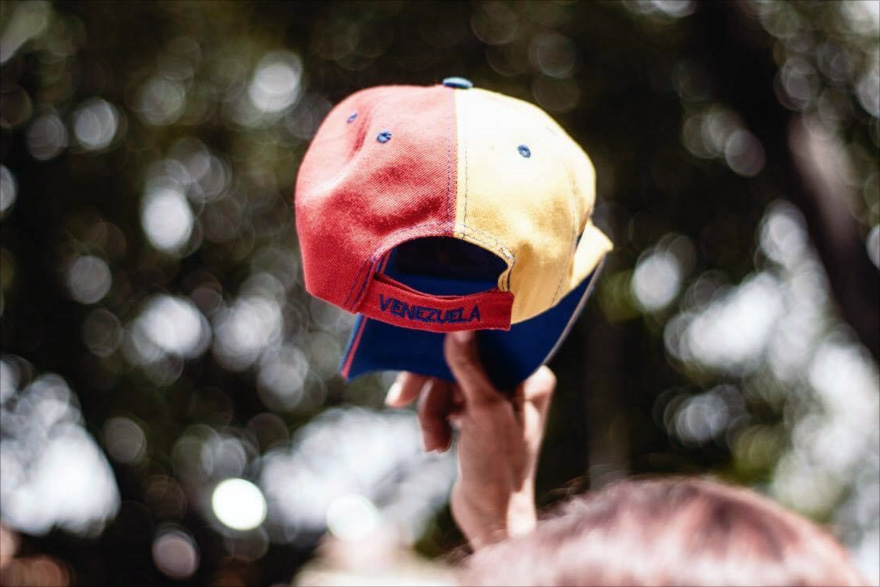Yakera: Using Blockchain Technology To Deliver Aid In Venezuela

As soon as I arrived at the Miami Airport, I rushed onto the plane that would take me back to Caracas, Venezuela. Everyone on board was waiting for me to take off. The gate was not too far from where I had arrived, but the minutes I spent getting there felt like years. The last hug I gave my mother was going through my mind as I ran across the cold, air-conditioned hallway between the gates. I was going back home after a long time in the United States, unsure of what I would find once I arrived in Venezuela. The beauty of Caribbean Sea skies and the beaches of La Guaira gave me a sense of normalcy that evaporated as soon as I made my way back to the city.
As I got onto the run-down elevator that would take me to my family’s apartment, I saw a neighbor whom I had not seen since I left the country. “Merry Christmas,” I said effusively. “There is nothing to celebrate,” she quickly replied. “Things are only getting worse, but I am happy for you. It seems like you have gained some weight.” I was shocked. What was previously perceived as a reason for shame or laughter was suddenly something to be proud of. My freshman 15 in school was suddenly a symbol of status. Although I always followed the news, the cold reality of my country checked on me, just minutes after getting back.
I left the country in 2016 on a scholarship to attend UWC-USA, an international boarding school in New Mexico, and was later awarded a leadership scholarship to attend Kenyon College in Ohio. Since I left Venezuela, the humanitarian crisis has followed me and my family. A couple years into my time in the U.S., my mother had to close down the small business that sustained her and my brother—a small cheese shop she opened 16 years earlier. My neighbor was right, things are getting worse. While the situation has worsened significantly, there is little help coming in. Aid efforts have been limited by the regime and local NGOs face continuous threats of imprisonment and attacks led by paramilitary groups. Even though some people have been able to turn to family members abroad to fund medical procedures or get enough money to get by, most Venezuelans are left to their own luck in a country in chaos.
That is why, a year and a half ago, I founded Yakera. I got together with students from nine different countries and colleges in the United States and Europe to create a nonprofit organization that could provide a direct lifeline to Venezuelans in need of humanitarian assistance. Yakera is a Venezuela-focused fundraising platform that allows people to request humanitarian support and uses blockchain technology to deliver aid in Venezuela. Yakera—gratitude in the Venezuelan indigenous language Warao—seeks to give Venezuelans a pathway to tell their stories to an international audience and receive assistance in healthcare, nutrition, education, and small business. At Yakera, Venezuelans can open their fundraising campaigns and receive donations in their Airtm account, an e-wallet that allows for currency exchanges and international transfers. Once they receive the donations in their Airtm accounts, they can withdraw the money in their Venezuelan bank account, use a debit card to pay for expenses in U.S. dollars or send it to other individuals. Airtm uses a safe network of local cashiers in Venezuela who can exchange the US dollars for Venezuelan bolivars through local bank transfers while the platform holds the dollars in escrow. Once both parties have confirmed that the transaction in bolivars has taken place, Airtm releases the USD in the Airtm account of the person that debited the bolivars. Under this framework, the regime has no way to track the transactions or stop Yakera’s activity even if it wishes to do so.
At Yakera, we will uplift the Venezuelan stories, translate their fundraising campaigns, and reach an international audience that will be able to use their credit, debit cards, or PayPal to support people’s needs directly. Unlike other platforms, Yakera will focus on those who need the most support and provide them with the agency to determine where and how to purchase the goods and services they deserve. Yakera can solve the issues with aid delivery in Venezuela and empower people beyond the regime’s reach.
We launched a version of the website and are preparing for our community pilot in February alongside a local NGO in El Calvario—a low-income neighborhood in Caracas—to test Yakera, measure our outcomes, and support a dozen of individual campaigns and community projects. Our long-term goal is to establish a solidarity-powered system of donations that reaches those who are most vulnerable in Venezuela’s humanitarian crisis and provide an aid alternative that alleviates poverty, promotes sustainable development and allows Venezuelans to transition from survival to resilience. As the regime continues to crack down on local organizations and aid coming in the country, blockchain-powered initiatives like Yakera that can give individuals direct help will be essential. With Yakera, the neighbor from the rundown elevator and the families struggling to keep their businesses open, put food on the table, and buy school supplies for their children, or purchase medicine can all tell their stories and receive the help they need.
You can visit the site at www.yakera.net/donate and support the community pilot and the organization.
DISCLAIMER: McCain Institute for International Leadership is a non-partisan “do-tank” that is part of Arizona State University. The views expressed in this blog are solely those of the author and do not represent an opinion of the McCain Institute.